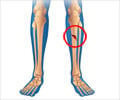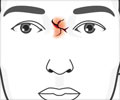It is a well known fact that a majority of hip fracture patients of all ages and both sexes have insufficient or deficient levels of vitamin D.

Researchers retrospectively reviewed the vitamin D levels of 1,539 patients, including 448 acute hip fracture patients and 1,091 total hip (THR) or total knee replacement (TKR) patients, from December 2010 to December 2011 at a major medical center in southern California.
Patients were categorized based on their vitamin D levels – deficient, insufficient or sufficient – and according to age and sex. The mean vitamin D levels for the hip fracture and the THR and TKR patients were 26.38 ng/mL and 29.92 ng/mL, respectively. More patients in the hip fracture group were deficient or insufficient (65.8 percent versus 54 percent), and patients age 71 years and older were more deficient or insufficient in the hip fracture group than the joint replacement group (66.7 percent versus 47.13 percent).
Overall, the majority of patients age 18 and older of both sexes with hip fractures had insufficient levels of vitamin D, and those age 71 or older had significantly lower levels than the control group of THA and TKA patients.
Source-Eurekalert
 MEDINDIA
MEDINDIA




 Email
Email










